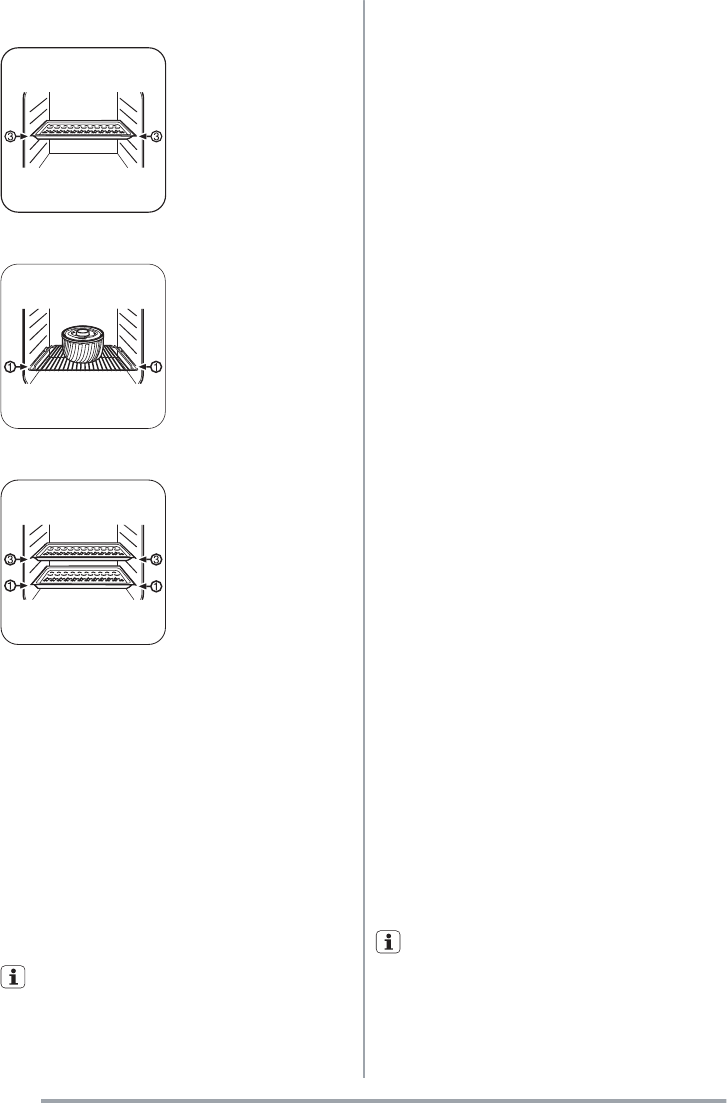
1 tray, e.g. oven level 3
1 cake in cake tin, e.g. oven level 1
2 tray, e.g. oven levels 1 and 3
Baking tins
• Baking tins made from dark-coloured metal with Teflon
coating are suitable for baking using Conventional
Cooking.
• For baking using the Fan Cooking function, baking tins
made of shiny light-coloured metal are suitable.
General instructions
• Insert the tray with the bevel at the front.
• When baking using Conventional Cooking and Fan
Cooking , you can also place two baking trays next to
one another on one level. This does not significantly
affect the baking time.
When frozen items are placed on baking trays, they
can buckle during cooking. This happens due to the
large difference in temperature between the frozen item
and the oven. After cooling, the buckling in the trays dis-
appears.
How to use the Baking Tables
• The tables give the required temperature settings,
cooking times and oven levels for a selection of typical
dishes.
• Temperatures and baking times are for guidance only,
as these will depend on the consistency of pastry,
dough or mixture, the amount and the type of baking
tin.
• We recommend setting the oven to a lower temperature
for the first time and only setting a higher temperature
when required, e.g. if you require more browning or if
the baking is taking too long.
• If you cannot find the settings for a certain recipe, look
for similar items.
• The baking time can be 10-15 minutes longer when
baking cakes on trays or in tins on multiple levels.
• Recipes with moist ingredients such as pizzas or fruit
flans are to be baked on one level.
• Cakes and pastries at different heights may brown at
an uneven rate at first. You should not change the
temperature setting if this occurs. Different rates of
browning even out as baking progresses.
• Baking and roasting times could differ from those of
your previous oven. For this reason you should adjust
the settings you usually use (temperature, cooking
times, etc.) and oven levels to the recommendations
provided in the following tables.
Roasting
Ovenware for roasting
• Any heat-resistant ovenware is suitable to use for
roasting. (Please follow the manufacturer's instruc-
tions.)
• You can place large roasts directly in the roasting tray
or on the shelf with the roasting tray underneath.
• We recommend roasting leaner cuts in a roasting pan
with a lid. The meat will be more succulent.
• All types of meat which are supposed to be browned
or form a crust or crackling can be roasted in a roasting
pan without a lid.
The information given in the following tables is for
guidance only.
• We recommend meat and fish weighing 1 kg or more
for roasting in the oven.
8


















